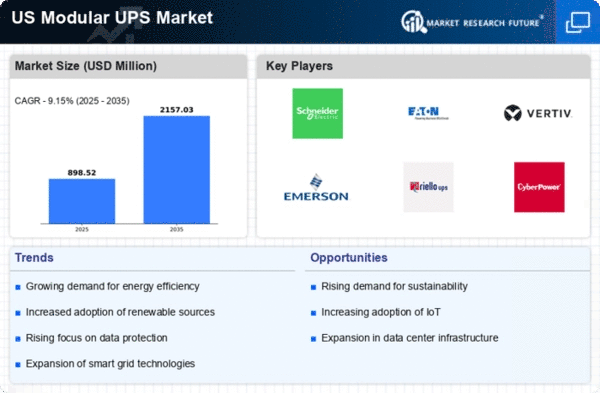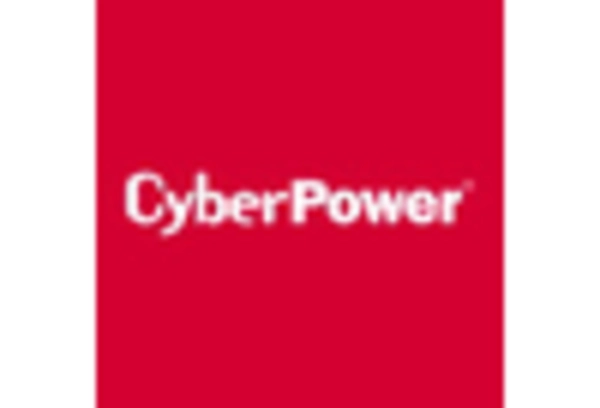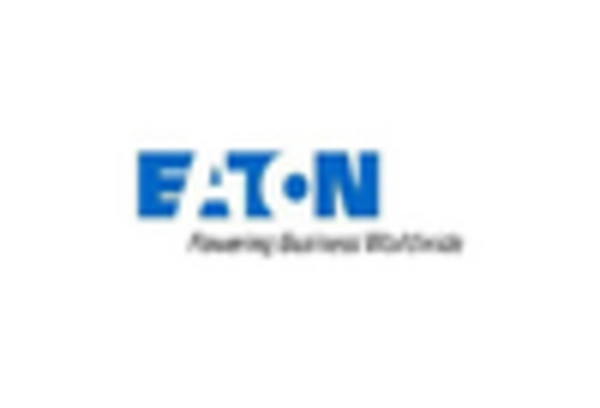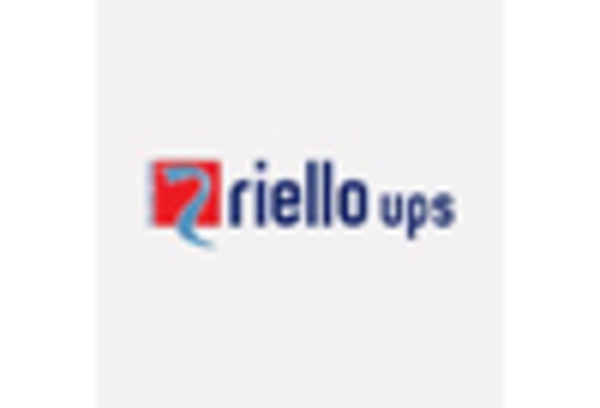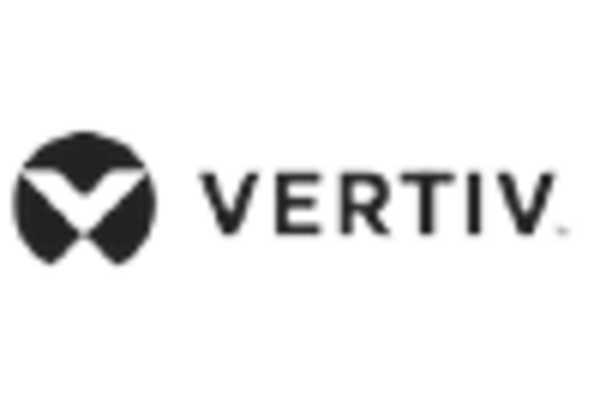Rising Data Center Investments
The modular ups market is experiencing a surge in demand due to increasing investments in data centers across the United States. As organizations prioritize digital transformation, the need for reliable power solutions becomes paramount. In 2025, the data center sector is projected to grow by approximately 10% annually, driving the demand for modular UPS systems that offer scalability and efficiency. Modular UPS systems provide the flexibility to expand power capacity as data center requirements evolve, making them an attractive choice for operators. This trend is further supported by the growing reliance on cloud computing and big data analytics, which necessitate uninterrupted power supply. Consequently, the modular ups market is likely to benefit from this investment wave, as businesses seek to enhance their operational resilience and minimize downtime.
Increased Focus on Sustainability
Sustainability initiatives are becoming increasingly critical for businesses in the United States, influencing the modular ups market. Companies are actively seeking energy-efficient solutions to reduce their carbon footprint and comply with environmental regulations. Modular UPS systems, known for their energy efficiency, can significantly lower energy consumption, aligning with corporate sustainability goals. In 2025, it is estimated that energy-efficient technologies could reduce operational costs by up to 20%, making modular UPS systems a financially viable option. Furthermore, as organizations strive to achieve net-zero emissions, the demand for modular UPS solutions that integrate with renewable energy sources is expected to rise. This shift towards sustainability not only enhances corporate responsibility but also positions the modular ups market as a key player in the transition to greener energy solutions.
Regulatory Compliance and Standards
Regulatory compliance is a significant driver for the modular ups market, as businesses in the United States must adhere to stringent power quality and safety standards. The implementation of regulations such as the National Electrical Code (NEC) and various environmental guidelines necessitates the use of compliant power solutions. Modular UPS systems are designed to meet these standards, providing organizations with peace of mind regarding their power infrastructure. In 2025, it is anticipated that compliance-related investments in power solutions will increase by 8%, further propelling the modular ups market. Companies are increasingly aware that non-compliance can lead to hefty fines and operational disruptions, making the adoption of modular UPS systems a strategic decision. This focus on regulatory adherence not only enhances safety but also positions the modular ups market as a critical component in the broader landscape of power management.
Growing Demand for Uninterrupted Power Supply
is a key driver of Industries such as healthcare, finance, and telecommunications rely heavily on continuous power to maintain operations and protect sensitive data. In 2025, the demand for modular UPS systems is expected to rise by 12% as businesses recognize the critical importance of power reliability. Modular UPS systems offer the advantage of redundancy and scalability, allowing organizations to tailor their power solutions to specific needs. This adaptability is particularly appealing in sectors where downtime can result in significant financial losses or safety risks. As the reliance on technology continues to grow, the modular ups market is likely to expand in response to the increasing demand for reliable power solutions.
Technological Advancements in Power Solutions
The modular ups market is poised for growth due to rapid technological advancements in power solutions. Innovations such as lithium-ion battery technology and smart monitoring systems are enhancing the performance and reliability of modular UPS systems. These advancements allow for better energy management, predictive maintenance, and improved efficiency. In 2025, the adoption of smart UPS systems is projected to increase by 15%, as businesses seek to leverage technology for enhanced operational efficiency. Additionally, the integration of Internet of Things (IoT) capabilities into modular UPS systems enables real-time monitoring and data analytics, providing users with valuable insights into power usage and system performance. This technological evolution is likely to drive the modular ups market forward, as organizations increasingly prioritize advanced power solutions to meet their operational needs.

